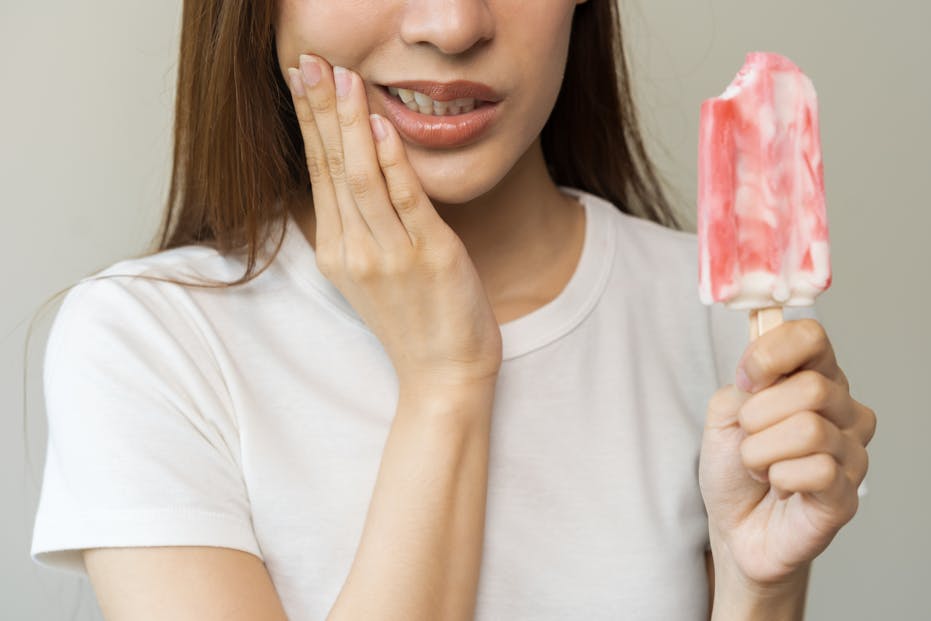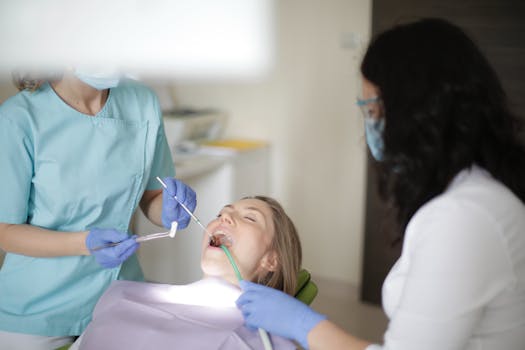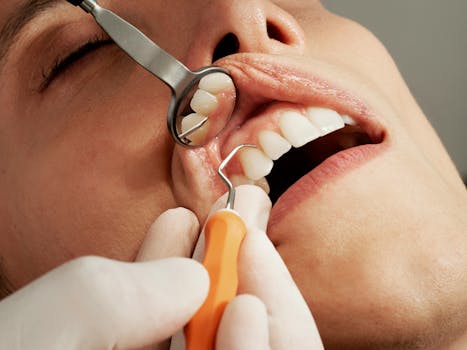Understanding Tooth Diseases: Your Path to Healthy Teeth
Tooth diseases are a widespread issue that can affect not only your smile but also your overall health. In this detailed blog post, you'll learn everything important about the most common tooth diseases, their causes, symptoms, and most importantly, how you can optimally care for your dental health.



The most common tooth diseases
Caries
Caries, also known as tooth decay, is one of the most common tooth diseases worldwide. It is caused by bacteria in your oral cavity that convert sugar into acids. These acids attack the enamel and lead to the formation of holes in the tooth substance. If untreated, caries can penetrate to the tooth root and cause toothache.
Gingivitis and periodontitis
Gingivitis is an inflammation of the gums caused by plaque and food residues. Symptoms include bleeding gums, redness, and swelling of the gums. If gingivitis is not treated, it can develop into periodontitis. Periodontitis is a more serious form of gum inflammation that attacks the periodontium and jawbone. This can lead to tooth loss.
Root inflammation and abscess
Root inflammation occurs when the pulp, the dental marrow, is inflamed. This can be caused by deep caries or an injury to the tooth. Untreated root inflammation can lead to an abscess, a painful accumulation of pus that requires immediate dental treatment.
Pulpitis
Pulpitis is the inflammation of the pulp and can be acute or chronic. It often causes severe toothache and requires treatment to save the affected tooth.
Tartar and plaque
Tartar forms when plaque hardens and adheres to the tooth surface. Tartar can irritate the gums and lead to gingivitis and periodontitis. Regular brushing and professional dental cleaning are important to avoid tartar.
Tooth diseases from teeth grinding
Teeth grinding, also known as bruxism, can lead to dental damage such as enamel wear, cracks in the dentine, and even loose teeth. Stress reduction and dental splints can help control teeth grinding.
Dentine and exposed tooth necks
In modern dentistry, the health of dentine, the main substance of our teeth, is the focus of many treatments. The dentine, which is directly beneath the enamel, is susceptible to wear and can be damaged by cavities or erosion. Particularly problematic are exposed tooth necks, which result from gum recession and leave the sensitive dentine unprotected. This can lead to severe tooth pain and increased sensitivity, especially when in contact with hot, cold, or sweet foods and drinks. In Germany, such complaints are widespread, and many Germans regularly seek dental help to address these issues and maintain their dental health. Through targeted prevention and timely treatment, most problems with dentine and gums can be effectively reduced.
Causes of dental diseases
Poor oral hygiene
Insufficient tooth brushing and lack of use of floss can lead to plaque and tartar buildup, which in turn can cause cavities, gingivitis, and periodontitis. Good oral hygiene is essential for healthy teeth.
Sugar-rich diet
A diet high in sugar and carbohydrate-rich foods promotes the growth of cavity-causing bacteria. These bacteria produce acids that attack the enamel and cause cavities.
Smoking
Smoking impairs the blood circulation of the gums and increases the risk of gum diseases such as gingivitis and periodontitis. It can also slow down the healing process after dental procedures.
Genetic factors
Some people are genetically more susceptible to dental diseases. If dental diseases run in your family, you should pay extra attention to your dental care.
Medical conditions
Conditions like diabetes can increase the risk of dental diseases. Certain medications can also affect oral health by reducing saliva production and causing dry mouth.
Symptoms of dental diseases
Toothache
Toothache is often the first sign of a dental disease. It can be caused by cavities, tooth root infections, abscesses, or gum diseases.
Bleeding gums
Bleeding gums are a common symptom of gingivitis and periodontitis. It should not be ignored, as it can indicate a serious gum disease.
Halitosis
Persistent bad breath can be a sign of plaque, cavities, or gum disease. Thorough oral hygiene can help reduce bad breath. Also, come in for a tongue cleaning at the ALPINE WHITE studio, which also helps keep your breath fresh.
Swelling and pus
Swelling in the mouth and discharge of pus are signs of an infection that requires immediate dental treatment.
Loose teeth and tooth loss
Loose teeth are a serious symptom of periodontitis and can lead to tooth loss if left untreated.
Prevention of dental diseases
Regular brushing of teeth
Brush your teeth at least twice daily with a fluoride toothpaste. Fluoride strengthens the enamel and helps prevent cavities. Use our Whitening Toothpastes for this purpose.
Using floss and mouthwash
Clean between your teeth daily with dental floss to remove plaque and food particles. A mouthwash can also help reduce bacteria and freshen your breath.
Healthy diet
Avoid sugary and highly processed foods. A balanced diet rich in fruits, vegetables, and whole grains promotes dental health.
Regular ALPINE WHITE visits
Visit your studio at least twice a year for check-ups and professional cleaning. Your dental hygienist can detect and treat early signs of dental diseases. This promotes optimal oral hygiene.
Avoiding tobacco
Smoking significantly increases the risk of dental diseases. Quitting tobacco is an important step in maintaining your dental health.
Stress management
Stress can lead to teeth grinding, which can damage your teeth. Stress management techniques like yoga, meditation, or exercise can help reduce teeth grinding.
Treatment of dental diseases
Fillings and crowns
Cavities can be treated with fillings to close the hole in the tooth and prevent further damage. For large damages, a dental crown may be necessary to protect the tooth. However, with our Caries Repair treatment, you can treat cavities early and avoid costly procedures.
Root canal treatment
A root canal is necessary if the pulp is inflamed or infected. The inflamed tissue is removed, and the tooth is filled and sealed.
Periodontal treatment
For periodontitis, a deep cleaning below the gum line may be necessary to remove plaque and tartar. In severe cases, surgical treatment may be required to restore the supporting structures of the teeth.
Removal of wisdom teeth
Wisdom teeth can often cause problems when they do not break through properly. In such cases, removal is necessary to avoid pain and infections.
Dentures
In the event of tooth loss, there are various options for dentures, such as bridges, implants, or prostheses, to restore the function and appearance of your teeth.
The importance of dental care in children
Milk teeth
The care of milk teeth is just as important as that of permanent teeth. Milk teeth serve as placeholders for permanent teeth and are important for speech development and chewing.
Dental visits
Children should have their first dental visit within their first year of life. Regular visits help to detect and treat dental diseases at an early stage.
Healthy habits
Teach your children from an early age the importance of oral hygiene. Regular brushing and the use of dental floss should become habits early on.


For a healthy mouth and beautiful teeth, regular professional teeth cleaning is essential. Our specialists detect early signs of caries and prevent them.
- Personalised dental hygiene
- Gum check & caries control
- Painless cleaning with AIRFLOW
The role of professional dental cleaning
Removal of plaque and tartar
A professional dental cleaning removes stubborn plaque and tartar that you cannot reach with daily oral hygiene. This is important to prevent gingivitis and periodontitis.
Polishing the teeth
After cleaning, the teeth are polished to smooth the tooth surface and reduce new deposits. This helps to keep your teeth cleaner and shinier for longer.
Dental care advice
Your dentist or dental hygienist will give you valuable tips on improving your oral hygiene and taking care of your healthy teeth.
Healthy teeth for a radiant smile
Dental diseases can be painful and costly, but with the right care and prevention, you can maintain your dental health. Regular brushing, the use of dental floss and mouthwash, a healthy diet and regular ALPINE WHITE or dental visits are the keys to healthy teeth and a radiant smile. Remember that your dental health affects not only your smile but also your overall health. Invest in your dental care, and you will enjoy the benefits for a lifetime.


